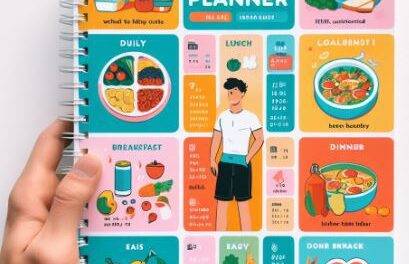Introduction:
how to meal plan on a budget, In a world where expenses seem to pile up, meal planning on a budget has become a life-saving skill. It’s not just about saving money; it’s about eating well without breaking the bank. Whether you’re a student trying to make ends meet, a family looking to cut down on grocery costs, or someone who simply wants to be more mindful of their spending, this guide on how to meal plan on a budget is here to help you. By the time you finish reading, you’ll be equipped with the knowledge and strategies to create delicious, nutritious meals without draining your wallet. for more information click here.

The Benefits of Meal Planning on a Budget
Before we delve into the nitty-gritty of meal planning, let’s take a moment to understand why it’s such a valuable practice.
- 1. Saves Money: One of the most obvious benefits of meal planning on a budget is the savings. By making a plan, you can shop strategically, avoid impulse purchases, and reduce food waste. All of this translates to more money in your pocket.
- 2. Healthier Eating: When you plan your meals, you’re in control of what you eat. This means you can prioritize nutritious ingredients and avoid the temptation of ordering fast food or grabbing unhealthy snacks on the go.
- 3. Reduces Stress: Knowing what you’re going to eat in advance eliminates the last-minute scramble to figure out dinner. This reduces stress and makes your daily life more manageable.
- 4. Enhances Creativity: Meal planning encourages you to get creative with your cooking. It’s an opportunity to try new recipes, ingredients, and cooking techniques.
Now that we understand why meal planning on a budget is so beneficial, let’s dive into how to do it effectively.
How to Meal Plan on a Budget: A Step-by-Step Guide
- 1. Set a Realistic Budget: Determine how much you can comfortably spend on groceries each week or month. Be sure to consider other expenses to ensure your budget is sustainable.
- 2. Take Inventory: Before you start making a meal plan, take a look at what’s already in your pantry, fridge, and freezer. Use these items as a foundation for your meals to avoid waste.
- 3. Plan Your Meals: Sit down and create a meal plan for the week or month. Choose recipes that use ingredients you already have and are budget-friendly.
- 4. Make a Shopping List: With your meal plan in hand, make a detailed shopping list. Stick to it and avoid impulse purchases.
- 5. Buy in Bulk: When possible, purchase items in bulk. This is often more cost-effective in the long run.
- 6. Embrace Seasonal and Sale Items: Plan your meals around what’s in season and on sale. These items are usually more affordable and fresher.
- 7. Cook in Batches: Cooking in batches not only saves you time but also helps you portion meals, reducing the chances of overeating or wasting food.
- 8. Get Creative with Leftovers: Repurpose leftovers into new dishes to reduce food waste. For example, turn last night’s roasted vegetables into a tasty frittata or stir-fry.
- 9. Shop Smart: Look for discounts, use coupons, and consider store brands instead of name brands. Shopping at discount stores can also be a great way to save money.
- 10. Monitor and Adjust: Keep track of your spending and adjust your meal plan as needed. If you find you’re consistently overspending in one area, make necessary changes.
Conclusion:
Meal planning on a budget is a skill that anyone can learn, and it’s a game-changer when it comes to managing your finances and enjoying delicious, homemade meals. By setting a budget, planning your meals, and shopping wisely, you’ll be on your way to saving money, eating healthier, and reducing food waste. As you embrace this practice, you’ll discover that meal planning isn’t just about cost-cutting; it’s a gateway to culinary creativity and a healthier, more stress-free lifestyle. So, start today, and watch as your wallet and your taste buds thank you for your efforts. Happy meal planning!
Incorporating these strategies into your daily life can have a profound impact on your financial well-being while allowing you to savor every bite.









